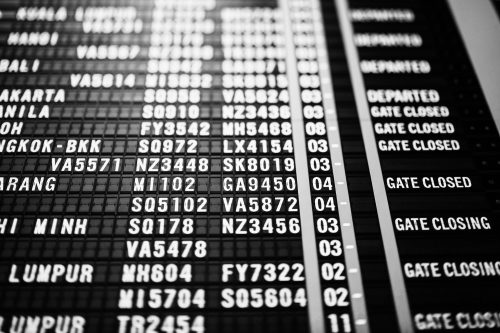Must one unplug to properly observe reality?
Going without a phone for any extended period of time seems to be the modern-day equivalent of a vow of silence. Two months ago I 86’d my phone for 60 days to see if my world would keep spinning (it did). People were shocked, appalled, and flat-out worried.
I’ll skip the trite Matrix references regarding unplugging from the grid, and simply say I learned more about myself than I intended. I couldn’t have done so without disconnecting for a while, without stepping back and actually thinking about my life in a deliberate, uninterrupted way.
This is what I learned during my two months of quiet time:
We have weird expectations. I realized I needed to get rid of my cellphone for a while when I felt pressure to respond to text messages, email, and social media throughout the day. We all have different expectations. You might expect a response in an hour, someone else might expect a response in ten minutes, another person might expect a response the same day. These expectations are arbitrary. When I eliminated my ability to immediately respond, I was able to toss everyone’s expectations into the ether.
Meaningful conversations. Without the banality of ephemeral text conversations, my face-to-face conversations have become more meaningful: when I’m spending time with my closest friends and loved ones, I now have more to discuss in earnest. I enjoy these conversations more than ever.
People are supportive and understanding. When we make changes in our lives, we’re often afraid of what people will think. Will they think I’m crazy, stupid—out of touch? People are more supportive and understanding than we think—particularly the people closest to us. Especially when we discuss our changes with them, and let them know we’re making the changes so we can live happier lives: our true friends want us to be happy.
We program ourselves. Without knowing it, our daily activities have a profound impact on our future selves. I used to reach for my BlackBerry every few minutes no matter where I was—even at the urinal. Even when the phone wasn’t with me, I had programmed myself to reach for it. What an obscene Twitch!
We can reprogram ourselves. We can change these patterns. When we remove a habit from our lives, we become acutely aware of how that habit affected our lives—this is true for any habit: smoking, overeating, etc. It took 22 days for me to reprogram the Twitch, 22 days of pausing to notice why I was Twitching. After 22 days I no longer felt the urge to immediately react; I no longer felt the need to pacify myself with transitory activities like texting or responding to emails during every moment of “downtime.”
Downtime is a misnomer. We used to have precious interstitial zones in which we could find momentary solace: airports, checkout lines, waiting rooms, and other transient sanctuaries. No longer is this the case. Now everyone seems to be on their phones during these fleeting moments: they are attempting to be more productive or interactive, but perhaps stopping and thinking will be more effective.
The world goes on. Without a cellphone, without the Internet, without a television, the world keeps turning. You can test anything for a short period of time to see if it’s right for you: it’s not difficult to give up anything when you live in the real world. There wasn’t a single time when I actually needed my phone in the last two months—there were times when it was inconvenient, times when I had to fight through the frustration—but that was a small price to pay to reprogram the Twitch.
Yes, I’ll return to using a cellphone for practical purposes—GPS, necessary phone calls, the dictionary app I missed dearly, a memo pad, and a few other useful apps—but I’ll use it differently moving forward: I’m not going to use it to check email anymore, I’m not going to use it to send text messages while standing at a urinal, and I’m not going to use it as my primary means of interacting with the world. My cellphone usage will be more intentional than before—my phone will be a tool, not an appendage.
Read this essay and 150 others in our new book, Essential.


